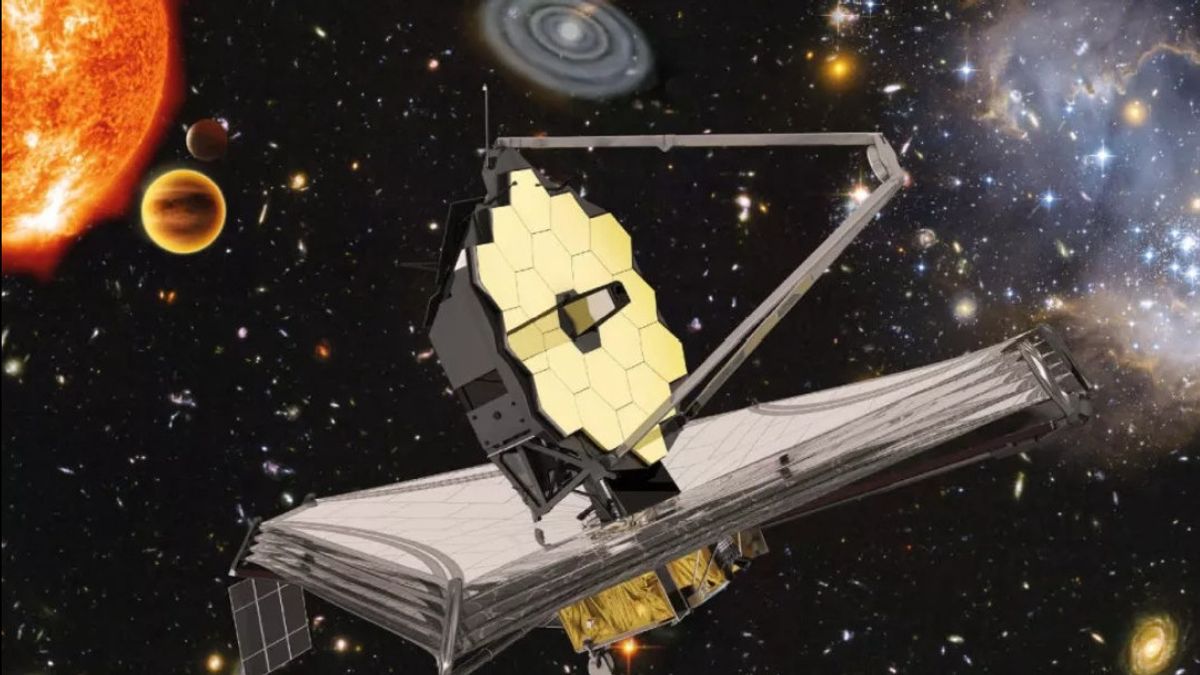JAKARTA - Over the past few months, 14 dust-sized micrometeoroids have reached the golden mirror of the James Webb Space Telescope (JWST), which stretches for 6.5 meters.
Although the giant observatory remains stunning and can still spy on space, the mission crew on Earth has decided to adjust the telescope's operations. This is to avoid direct micrometeoroids.
"The microrometeoroid that hits the mirror directly has a relatively double speed and fourfold kinetic energy, so avoiding this direction if possible will help extend very good optical performance over the decades," said Webb optical telescope element manager at NASA, Lee Feinberg.
The tiny space rock has caused some damage to one of the telescope's 18 main mirror segments.
The damage was not serious enough to interfere with science operations, but it raised concerns about how much damage the telescope could suffer from from from a similar impact in the future.
The Webb Telescope crew learned that some of the impacts of the micrometeoroids were inevitable, as there were many small particles in the area where the telescope was orbiting around the Sun.
The telescope was designed to withstand minor collisions, but the crew concluded only bad luck hit him so quickly after it launched in December 2021.
However, the Webb Telescope is extremely vulnerable as its mirrors are very wide and exposed directly into space, unlike the mirrors of the smaller and shielded Hubble Telescope.
Unfortunately for the Webb Telescope, shrinking or protecting mirrors will reduce the telescope's strength. The telescope can still image all areas of the sky, but will point to different regions at different times within a year to minimize the risk of impact.
The Webb Telescope crew plan will begin with a second year of telescope science observations called Cycle 2, starting in July 2023.
For information, the Webb Telescope orbits at Lagrange point, it is located nearly 1 million miles away from Earth. Thus quoted from Digital Trends, Monday, November 21.
The English, Chinese, Japanese, Arabic, and French versions are automatically generated by the AI. So there may still be inaccuracies in translating, please always see Indonesian as our main language. (system supported by DigitalSiber.id)








